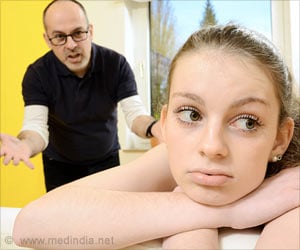Ishita Chowdhury of the Youth Parliament, which works with more than 800 young people on issues of health, sexuality and education in Delhi
Young people from across the Asia Pacific region, who are attending a health and sexuality conference at Hyderabad, Wednesday voiced their opposition to the ban on sex education in 12 Indian states and said that parliamentarians themselves could do with a lesson or two.
Ishita Chowdhury of the Youth Parliament, which works with more than 800 young people on issues of health, sexuality and education in Delhi, said that denying young people information about sexuality is like letting them go unguarded against all odds in life."The ban on sex education by the state governments needs to be addressed immediately. The right to information on sexuality is the right to speech and right to health. And this ban simply violates India's commitment to various UN treaties," Chowdhury told IANS.
Completely discarding the belief that educating children about sexuality will encourage them to try and experiment with sex, youth groups said experimentation happens only when there is curiosity.
"When you don't know something and are curious, then you try and experiment. Once you are well informed about the subject you know what to do and what not to and more importantly how to guard yourself against dangers," said Himakshi Kriplani of the Global Youth Coalition.
And as far as the issue of sex education being against Indian morality goes, they said that those who say that should probably go to the Khajuraho temples and prevent children and adolescents from visiting it because of the graphic architecture.
Supriya Pillai, programme officer of the New York-based International Women's Health Coalition, said that in places like Uganda, where people had similar beliefs, it was found that the high incidence of HIV among the youth had come down after the introduction of sex education.
Sheena Hadi of a youth group in Pakistan said that they had to work hard to promote sex education in schools. "It was difficult but we finally managed to convince the authorities of the Catholic schools to introduce this in their curriculum. This was an achievement," Hadi told IANS. Marida Chhaen of Cambodia, where sex education is a part of the curriculum, said that this move has only yielded positive results.
"Our country is like India in many ways and in the beginning there were similar protests against sex education. But we are lucky that the government is with us. "Now we have sex education in schools from Class 9. After this, talking about sex and sexual health has become a lot easier within our families. Even peer group conversations around this topic are based on facts," Chhaen said.
Similarly Ollan of Indonesia said that the introduction of sex education as a part of their curriculum has had a positive impact. "Sex education is, at present, included in the curriculum of other subjects such as biology and sociology. It started since last year. But we hope that it is soon taught as an independent subject. It has definitely helped students open up and ask questions to the teachers and get right information," Ollan said.
Coming back to India, those from the country said that getting the policy makers involved is tough. "Unless an issue has been highlighted by the media, the policy makers have absolutely no time to listen and have a conversation with us. They are inaccessible. But we don't give up so easily. In Nagaland, for example, we managed to get the government officials interested and they later invited us for a discourse," said Prateek Suman of the Youth Coalition Group based in Pune.
"On what basis did the chief minister of Madhya Pradesh say that instead of sex education children should do yoga? Will yoga help curb the rising number of young people falling prey to HIV? I think the parliamentarians can do with sex education themselves," Suman added.
More than 200 young people came together from different parts of the Asia Pacific region to participate in the three-day 4th Asia Pacific Conference on Reproductive and Sexual Health and Rights (APCRSH) here, which concluded Wednesday.
Source-IANS
LIN/M








